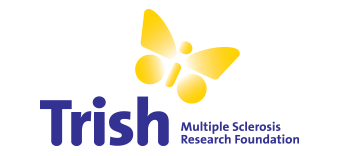Potential to promote repair
Despite the disruptions and challenges of the past two years, Dr Steven Petratos continues to make exceptional progress with his Trish Translational Research Project which commenced January 2020.
Animal models of multiple sclerosis (MS) are vitally important for the understanding of how brain cells die during disease progression and how specific molecules can be targeted safely to stop this. The main goal of the research proposal is to first understand how a specific group of molecules when decreased, limit the survival of cells (known as ‘oligodendrocytes’) that wrap a protective coating around nerve fibres (known as ‘myelin’). Such a change can cause damage to the brain but excitingly there is a class of drugs that may be able to stop this damage to the oligodendrocytes and myelin with the added benefit of stimulating repair to the damaged brain, by enhancing the generation of new oligodendrocytes from their immature cells (‘stem cells’) and making new myelin. If this project is successful, a new series of drugs will be available for progressive MS.
Dr Petratos and his group has uncovered that in the brains of individuals living with progressive MS, there are protein changes that cause the death of brain cells. These proteins are located in the cells that produce myelin. Importantly, the group has uncovered that a new class of medicines, known as small molecules, can access the brain to stop the death of these brain cells by protecting these proteins. This outcome has major implications in the protection of the myelin forming cells in the brain and can limit further damage imposed by the immune attack as seen in the progression of MS. Dr Petratos is now investigating whether the drug can also reverse the damage to the brain by activating stem cells to become myelin-forming cells. These outcomes will allow entry into a future Phase 2 clinical trial in Australia to stop and reverse the damage to the brain that occurs in progressive MS.
A major manuscript is currently being finalised for submission to a high-impact journal this year, as a result of progress in the first aim of the Project.
There were considerable disruptions throughout 2020 and 2021 that significantly impaired the progress of Dr Petratos’ research. Aim two is to trial the MCT8-independent thyroid hormone analogue, DITPA, as a potential therapeutic agent in demyelination to promote repair. These experiments have been planned for 2022 and will finally involve collaborators at the University Tasmania.
A new commercial agreement has commenced this month to bring the current small molecule to clinical trial in the near future and will allow Dr Petratos to recruit two full time Postdoctoral Fellows to ensure successful translation of the current research.
The Foundation is proud and honoured to be contributing to the ground-breaking work of Dr Petratos, having first funded his research in our inaugural round of funding in 2002.
